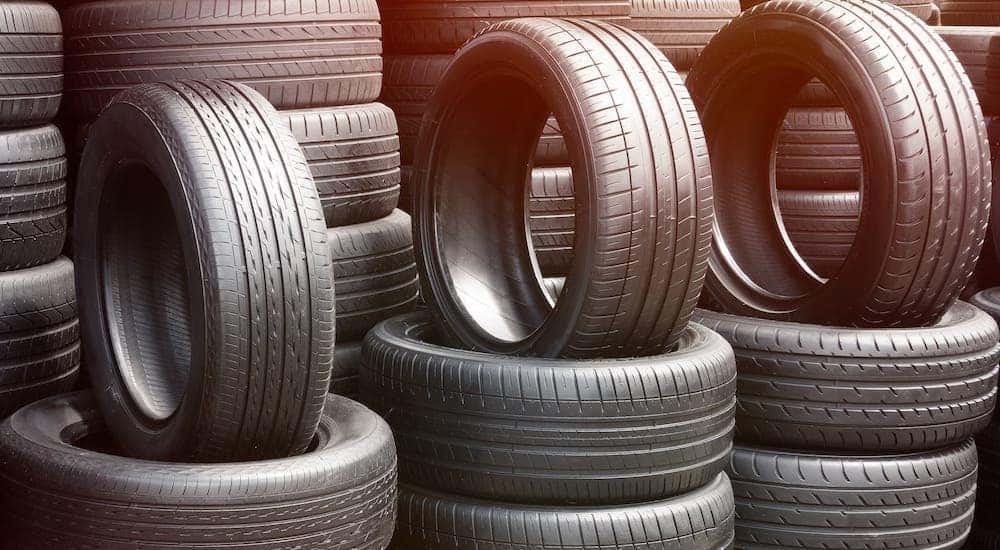Save Big with Mopar Tire Service Specials in Morris: Limited Time Uses
Save Big with Mopar Tire Service Specials in Morris: Limited Time Uses
Blog Article
Tire Solution: Comprehending Tire Stress Tracking Systems
Understanding Tire Stress Monitoring Systems (TPMS) is an important facet of keeping optimum lorry performance and security on the roadway. With advancements in automotive technology, TPMS has actually come to be a typical attribute in modern automobiles, providing real-time information on tire pressure degrees. Diving deeper right into the intricacies of TPMS, one can reveal the numerous components that comprise this system and the importance of each in making certain precise surveillance. From straight to indirect TPMS systems, the landscape of tire pressure tracking varies, each with its one-of-a-kind set of factors to consider and benefits. Stay tuned to decipher the complexities of TPMS, from maintenance ideas to the indisputable advantages of maintaining your tires appropriately pumped up. morris tire and alignment.

Value of TPMS
The importance of Tire Stress Tracking Solutions (TPMS) exists in their ability to enhance vehicle security and performance through real-time tracking of tire stress levels. Keeping the proper tire pressure is vital for guaranteeing ideal handling, braking, and general safety of an automobile. TPMS provides vehicle drivers with immediate responses on any overinflated or underinflated tires, enabling prompt modifications to be made.
Elements of TPMS
Sensors are usually situated in the tire shutoff stem or connected to the wheel setting up, where they gauge tire stress and send information to the control component. Some progressed TPMS versions additionally present the real tire stress analyses for each tire, supplying vehicle drivers with real-time details to make certain optimum tire efficiency and safety and security. By checking tire stress constantly, TPMS assists stop mishaps, decreases tire wear, and improves fuel performance, making it a crucial component for lorry safety and security and efficiency. morris tire and alignment.
Sorts Of TPMS

On the other hand, indirect TPMS relies upon the automobile's wheel speed sensors to keep track of tire stress. This system discovers underinflation by comparing the rotational speeds of the wheels. Indirect TPMS is much less expensive than straight TPMS, as it utilizes existing sensing units within the vehicle.
While direct TPMS supplies much more exact readings, indirect TPMS is easier in layout and usually calls for less upkeep. Both systems have their constraints and advantages, and the option in between them typically relies on elements such as expense, lorry make, and personal choice. Recognizing the differences in between these 2 kinds of TPMS can assist automobile proprietors make informed decisions pertaining to tire maintenance and security.
TPMS Upkeep Tips
Reliable upkeep of TPMS is vital for making certain optimum performance and safety of your automobile. Regularly inspecting the TPMS sensors for any type of damages or deterioration is crucial. Guarantee that the sensing units are cost-free and tidy from debris that could hinder their functioning. Additionally, it is advisable to inspect the sensor batteries periodically and replace them as needed to ensure precise readings. Conduct routine look at the tire pressure levels and compare them with the TPMS readings to guarantee they are regular. If there are any type of inconsistencies, rectify the system adhering to the supplier's guidelines. Throughout tire turning or replacement, make certain that the TPMS parts are managed thoroughly to prevent any kind of prospective damage. If the helpful site TPMS advising light illuminates Extra resources on the dashboard, attend to the issue without delay by inspecting the tire pressures and the general system for any mistakes. By adhering to these upkeep suggestions, you can lengthen the life expectancy of your TPMS and boost the security of your driving experience.
Benefits of Proper Tire Pressure
Maintaining appropriate tire pressure, as stressed in TPMS Upkeep Tips, is critical for enjoying the numerous advantages connected with ideal tire stress degrees. Additionally, appropriate tire stress makes sure also tire wear, prolonging the lifespan of the tires and promoting much safer driving conditions. In conclusion, the benefits of proper tire stress go beyond simply tire longevity; they encompass enhanced gas efficiency, enhanced security, better automobile performance, and general driving convenience.
Conclusion
In conclusion, recognizing tire stress surveillance systems (TPMS) is critical for preserving ideal tire stress and making sure automobile safety. By acknowledging the importance of TPMS, recognizing with its elements, understanding the various types offered, adhering to correct maintenance suggestions, and understanding the advantages of maintaining proper tire pressure, chauffeurs can improve their driving experience and prolong the life-span of their tires. Proper tire stress is essential to risk-free and reliable car operation.

Report this page